Learning and Evolving
In our last newsletter we told you about the successful completion of our first training program with the farmers in Rongo and Asumbi, and mentioned some of the challenges we would face moving on to the next stage of supporting them as they start to put into practice on their own farms what they learned in the training. Scroll down to see how we've spent the intervening period refining the program as we incorporate many lessons learned into our planning for this and future phases of the program.
The team is back in action working with the farmers in Asumbi who completed that first training. The farmers in Rongo will be taking part in a separate program, in effect giving us a control group to help evaluate the impact of our approach to post-training support and extension work.
We are delighted that after years of hard work we can take this next big step in the history of permEzone and finally see this first group of farmers putting into practice all that they’ve learned on a training course that they themselves have helped design, as well as defining what success will mean to them.
The team is back in action working with the farmers in Asumbi who completed that first training. The farmers in Rongo will be taking part in a separate program, in effect giving us a control group to help evaluate the impact of our approach to post-training support and extension work.
We are delighted that after years of hard work we can take this next big step in the history of permEzone and finally see this first group of farmers putting into practice all that they’ve learned on a training course that they themselves have helped design, as well as defining what success will mean to them.
Paul in a recent planning session with some of the lead farmers in Asumbi
What We’re Up To Now:
- Resuming the program in Asumbi with follow-up training sessions and extension work.
- Clarifying processes and objectives for admin, support, extension work and MEL (Monitoring, Evaluation & Learning).
- Discussing options to launch Phase 2 of the permEzone pilot program in Uganda - more details on this exciting progression to follow!
- Taking the mobile phone platform forward based on feedback from the farmers that we need to trial both voice and text-based messaging services to accommodate those who cannot read.
- Preparing for the next fundraising campaign to support the Phase 2 pilot. Please be ready to contribute and to share this within your network to locate possible donors so that we can be well positioned to kick off phase 2 in Uganda!
Key Changes as we move Forward:
We are now poised to take advantage of key learnings from the field and pivot our structure to be more adaptable to the realities we have experienced.
One key change is that we are transitioning from an “umbrella” approach - working with a regionally-based organization to oversee all phases of the pilot - in favor of a “network” approach in which we will work directly with the implementing organizations and create structures for a support network between them. This will allow us to cut a significant overhead in terms of cost and admin, and allow us to be more nimble and in closer contact with our farmer community.
The continuing program in Asumbi will be implemented by the existing team of Paul Omollo and Reagan Okoth, but now working through their own non-profit organization: C-MRA - Community Mobilization for Regenerative Agriculture.
Another change in the design of the program is that we are adding a final stage to put the emphasis very specifically on preparing each new farming community of practice to be self-supporting in continuing to develop its own sustainable and lasting success.
We are also improving our processes for bringing onboard new implementing organizations, clarifying how we communicate our objectives for the pilot and what is involved in delivering the program.
We are now poised to take advantage of key learnings from the field and pivot our structure to be more adaptable to the realities we have experienced.
One key change is that we are transitioning from an “umbrella” approach - working with a regionally-based organization to oversee all phases of the pilot - in favor of a “network” approach in which we will work directly with the implementing organizations and create structures for a support network between them. This will allow us to cut a significant overhead in terms of cost and admin, and allow us to be more nimble and in closer contact with our farmer community.
The continuing program in Asumbi will be implemented by the existing team of Paul Omollo and Reagan Okoth, but now working through their own non-profit organization: C-MRA - Community Mobilization for Regenerative Agriculture.
Another change in the design of the program is that we are adding a final stage to put the emphasis very specifically on preparing each new farming community of practice to be self-supporting in continuing to develop its own sustainable and lasting success.
We are also improving our processes for bringing onboard new implementing organizations, clarifying how we communicate our objectives for the pilot and what is involved in delivering the program.
Reagan Okoth during extension work

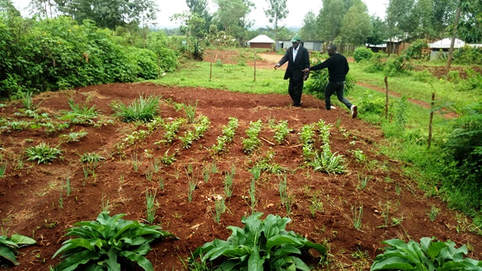
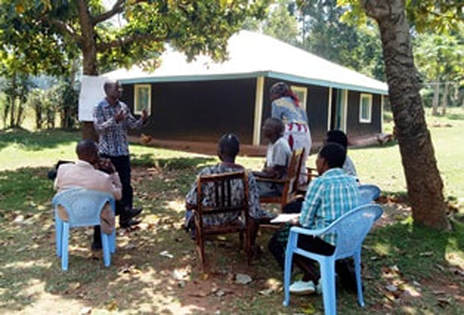
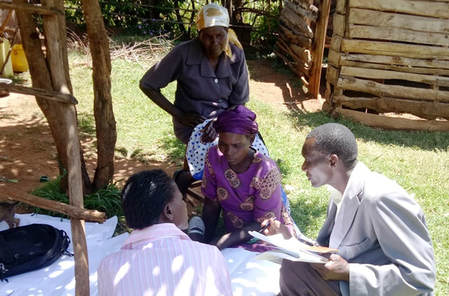
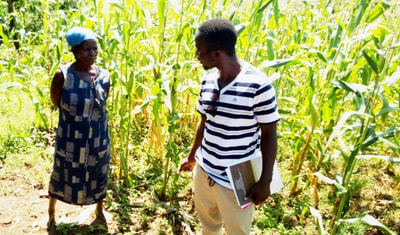
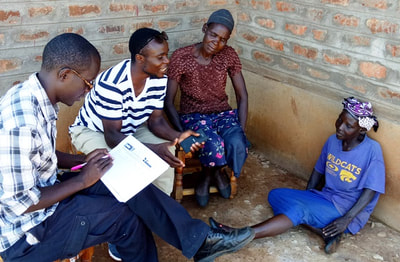



 RSS Feed
RSS Feed